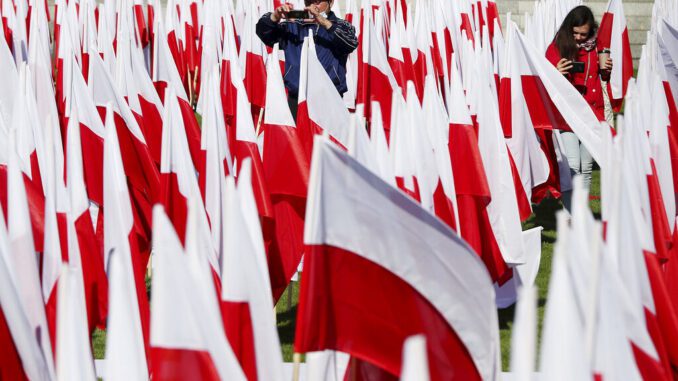
Dividing Europe before the end of the Cold War was an easy task with such terms as “West versus East,” “Berlin Wall” and “Free versus Communist.” Those monikers quickly assigned a country in Europe as being one of freedom with democratic rule or one of oppression under dictatorial communist rule by the Soviet Union, the USSR.
Turns out that same decades-old dividing line can still be used today to determine the political, economic and cultural directions of the continent.
In April, I moved from Raleigh to Warsaw, Poland, for my work. I am a self-employed businessman who owns an adult vacation/student academic travel company, a medical tourism company and an import/export company — the latter two of which I have a European partner. My businesses have kept me traveling all over the world the last 20 years.
What have I learned about human beings?
Old habits die slowly. Why? Because they are based on personal experience.
Western Europeans are now more than 75 years removed from the end of War II. The remaining citizens of these countries who were alive in 1945 — including my 85-year-old Dutch mother who lived through WWII as a young girl in The Netherlands — are now in the gray-haired golden years of their lives. She and her parents witnessed the rise of a socialist NAZI Party (National Socialist German Workers’ Party) as well as the building of the Berlin Wall and the forced control of millions under communist Soviet persecution via the USSR (Union of Soviet Socialist Republics).
Hitler and Stalin were real people and real existential threats to them, not just names in a history book.
Western Europeans are fierce anti-Trumpers today, ready to scowl at any American who supported our last president. Central and Eastern Europeans — those former Soviet empire countries — are much more enthusiastic to voice their support for Trump and his policies of freedom, economic growth and border protection.
Central and Eastern Europeans know personally the deprivation and suffering supplied by a suppressant central government whose economic aims are not based in a free-market system. These people are suspicious of the promises made by Obama, Biden and the rest of the Democrat Party. They have lived the path of destruction and privation under rulers that promised them anything and everything for free.
They have seen it and they do not want it again.
Why? Because they know from personal experience such a utopian existence is not possible. Something for nothing is not achievable. They sniff out the cynicism of such rhetoric and are rightfully wary of it.
Poland has poured its efforts the last 30 years into building a capitalist country and the results are impressive. Warsaw offers everything a similar-sized city in Western Europe offers in the way of architecture, history, culture, food and infrastructure at about half the price of its Western Europe urban counterparts.
Around 40% of all manufacturing jobs created in Central and Eastern Europe the last 10 years have come from Poland. Russia, Ukraine and other nearby countries’ leaders could have taken the same capitalistic approach as Poland but they have chosen oligarchies and corruption, and it shows.
For the believers in the perceived panacea of what northern European democratic socialism offers, my travels bring to me the stark narrative that in exchange for “free education, healthcare and 8 weeks of paid vacation,” citizens in Norway pay $3.25 for a single serve bottle of water at the convenience store and a $2.50 fee to access the public restroom at the Oslo train station. Citizens of Sweden pay the same fees plus $10 for a beer. The cost of living in these countries where everything is “free” is so high that the citizens cannot afford to raise enough children to prevent the population decline that will eventually render its country and people non-existent.
Experience matters. All countries are one generation away from not understanding the sacrifices of earning the rights to access freedom and opportunity. Eastern and Central Europeans know this lesson first-hand.
Americans and Western Europeans have much to learn from these impressive Polish citizens.



